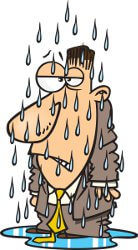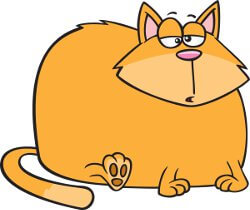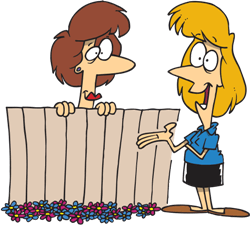The Complete List of
English Spelling Rules
Lesson
14:
Comparative and Superlative Adjectives
In this series of lessons, you will learn useful spelling rules in English.
This lesson will give you helpful guidelines so that you know how to spell comparative and superlative adjectives in English.

Download a free worksheet + answer key.
As you know, in order to form comparative and superlative adjectives in English, you need to change the adjective.
For shorter adjectives, you need to add -er to the end of the word to make a comparative or add -est to form a superlative.
For longer words, we add "more" before the adjective for the comparative form or "most" for the superlative.
1. Adding -er or -est to form a comparative

Barry is taller than Eric. Eric is shorter than Barry.
Click Here for Step-by-Step Rules, Stories and Exercises to Practice All English Tenses
The words "tall" and "short" are adjectives. They describe Barry or Eric. Since both of these words are only one syllable, we simply add -er or -est to the end of the word to make comparatives.
One-syllable words that end in a double consonant (or two vowels and a single consonant) simply take the -er or -est at the end. Here are some examples:
| Comparative | Superlative |
| longer | longest |
| darker | darkest |
| brighter | brightest |
| quicker | quickest |
| warmer | warmest |
| colder | coldest |
| older | oldest |
| younger | youngest |
| stronger | strongest |
| smarter | smartest |
| weaker | weakest |
| neater | neatest |
| louder | loudest |
2. Adding -er or -est to a one-syllable adjective that ends in a single
vowel and a single consonant

Harold's clothes could not possibly be wetter!
When the adjective you want to make into a comparative or superlative is only one syllable long and ends in a single vowel and a single consonant, you must double the final consonant, then add -er or -est.
Here are some common examples:
| Comparative | Superlative |
| bigger | biggest |
| fatter | fattest |
| hotter | hottest |
| sadder | saddest |
| madder | maddest |
| thinner | thinnest |
3. Adding -er or -est to an adjective that ends in Y

That was the funniest thing I have ever heard!
When the adjective ends in a y, you must change the y to an i, then add -er or -est to form the comparative or the superlative.
For example:
| Comparative | Superlative |
| prettier | prettiest |
| angrier | angriest |
| happier | happiest |
| busier | busiest |
| lovelier | loveliest |
| sillier | silliest |
| sleepier | sleepiest |
| thirstier | thirstiest |
| uglier | ugliest |
4. Adding -er or -est to a one-syllable adjective that ends in
E

Wow, your cat is much larger than mine!
For adjectives that end in e, you must only add -r to make a comparative and -st to make a superlative.
Here are some common examples of these adjectives:
| Comparative | Superlative |
| closer | closest |
| wiser | wisest |
| stranger | strangest |
| huger | hugest |
| ruder | rudest |
| looser | loosest |
| safer | safest |
| cuter | cutest |
| gentler | gentlest |
| simpler | simplest |
5. Making comparatives or superlatives with adjectives that have two or
more syllables

Karen is the most honest person I know!
One-syllable adjectives in English follow the rules above to add -er or -est. Adjectives with three or more syllables add the word "more" before them to become comparatives, and "most" to become superlatives.
Most two-syllable adjectives will take "more" or "most," but if they end in -y, -er, -le, or -ow, they follow the rules above.
Here are some examples:
| Comparative | Superlative |
| more interesting | most interesting |
| more complete | most complete |
| more beautiful | most beautiful |
| more important | most important |
| more dangerous | most dangerous |
| more colorful | most colorful |
| more exciting | most exciting |
| more complicated | most complicated |
| more boring | most boring |
6. Irregular comparatives and superlatives

This pillow is much better.
Finally, there are some very common adjectives that have irregular forms for their comparatives and superlatives.
Here are the most important ones for you to remember:
| Adjective | Comparative | Superlative |
| good | better | best |
| bad | worse | worst |
| well | better | best |
| far | farther / further |
farthest / furthest |
Review
So, let's review what we have learned about forming comparatives and superlatives in English:- For one-syllable adjective, add -er (comparative) or -est (superlative) to
the end of the adjective.
- If the one-syllable adjective ends in a single vowel and a
single consonant, double the final consonant before adding -er or -est.
- For adjectives that end in -y, change the y to i, then add -er or -est.
- If the one-syllable consonant ends in -e, simply add -r or -st.
- For adjectives with two or more syllables, add "more"
before the
adjective to form a comparative, or "most" to form a superlative
(unless the two-syllable adjective ends in -y, -le, -er, or -ow).
- Remember that there are some common irregular comparative and superlative adjectives.
Download a free
worksheet
Get Updates, Special Offers, and English Resources
Download your FREE GIFT (the first two chapters of
English Short Stories Book and Workbook)
as soon as you join!

By submitting your email, you consent to receiving updates and newsletters from us and to the sharing of your personal data with third parties for the purposes of sending you communications. We will not spam you. You can unsubscribe at any time. For more information, please see our privacy policy.





